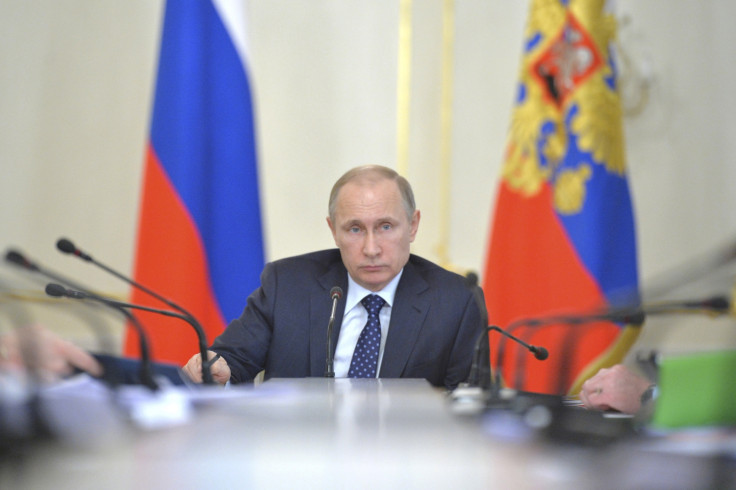Russia issues nuclear threat over Crimea and Baltic States

Russia has threatened to use nuclear force against the United States and its Nato allies over Crimea and the Baltic States, in a stark warning reportedly issued by Moscow's envoys to their counterparts earlier this month.
At a closed-door bilateral meeting held in Germany in mid-March, the Kremlin's emissaries cautioned that any Western attempt to return Crimea to Ukraine will be met with force.
Russia's nuclear posturing follows further expansion of Nato's military presence in Estonia, Latvia and Lithuania, where the Kremlin appears to be poised to begin destabilising actions like those it used in eastern Ukraine.
Notes of the meetings seen by The Times were drawn up by a group of retired US military and intelligence officials, who met for two days with former high-level members of Russia's intelligence agency, the FSB, and former Russian army generals in the town of Torgau, Saxony.
The document summarised the key points raised by the Russian delegation, which had been briefed by the Kremlin. The details were noted by the Elbe group, a diplomatic platform for US-Russian military and intelligence relations.
The first message reported was that, after its annexation last year, Crimea was now part of the Russian Federation and any attempt by Nato to win it back for Ukraine would be considered a direct attack against Russia.
As such, it "will be responded to forcefully, including through the use of nuclear force," the document read. "In this type of scenario, the United States should also understand it would also be at risk."
The Russians also used Cold War-era language to suggest that, despite their Nato membership, Moscow considered Baltic states no different from Ukraine, as they are home to a minority Russian ethnic population, which the Kremlin claims is being discriminated against.
The Russian delegation said that "the same conditions that existed in Ukraine and caused Russia to take action there" were also currently present in the three small countries off its western border.
"Russia would hope slowly to entice those Russian populations towards Russia without giving Nato a pretext to deploy troops," the US note of the Elbe group meeting read, according to The Times.
To counter Nato influence, "Russian members mentioned a spectrum of responses from nuclear to non-military," the document read.
Finally the Kremlin's envoys left the door open to a diplomatic solution to the conflict in Ukraine, saying that Moscow's preferred option would be the transformation of the country into a confederation allowing a large degree of autonomy to its rebellious eastern provinces.
In their report, the US delegates suggested that their counterparts issued such brazen threats to "shock the US back to the [negotiating] table" over Ukraine.
© Copyright IBTimes 2025. All rights reserved.




















